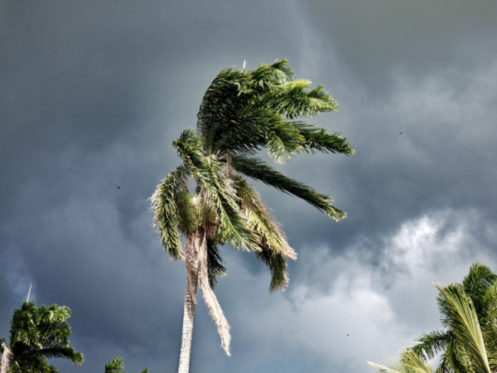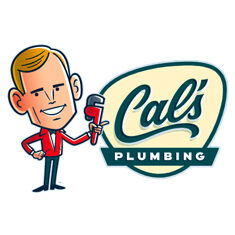Home or flood insurance policies will typically cover any damage that is directly caused by monsoon rains and high winds. With that being said, your responsibility as a property owner includes making sure that your property is in good condition. This means you must care for and maintain your plumbing system. If your plumbing is due for an inspection, repair or maintenance service, call Cal’s Plumbing today. Don’t let neglect and poor maintenance leave you on the hook for an expensive repair.
At Cal’s Plumbing, we understand that all kinds of weather can affect your plumbing. Whether you’re dealing with issues caused by a recent rainy season or trying to make sure your home, office, or other property can take the coming rains, we can help.
What Plumbing Problems Can a Monsoon Cause?
The deluge of rainfall during a monsoon can have a wide range of effects on plumbing. Effects of a monsoon on plumbing can include the following.
The drinking water from your tap might take on an unusual taste or a darker color than normal. Often this happens if your water comes from an open reservoir. The effect may be temporary, but you should contact a plumbing professional if it persists.
Soil that becomes saturated due to heavy rainfall can exert a tremendous amount of pressure, causing underground pipes to shift. Buried water or sewer pipes that shift can break, causing flooding. Flooding inside the home can destroy property and cause unsanitary conditions; flooding outside the home can cause a septic tank to fail.
The waste pipe that all household/building waste water flows into may become clogged during heavy rains. When this happens, sewage and runoff from showers and sinks may begin to back up into your home, apartment building, or office.
Standing water provides an ideal breeding ground for flies and mosquitoes.
Septic tanks can overflow if the rain falls at a rate that is much faster than they can handle. A septic system, like a clogged pipe, can back up and cause waste water to flow backward through the pipes and into your home or office. Landscaping that doesn’t allow enough water to drain from the property can contribute to this problem.
Unhygienic conditions, caused by clogged and backed-up waste water pipes, can lead to the spread of infectious diseases such as typhoid, mosquito-borne diseases, and diseases carried by flies. Waste water can also worsen allergies and respiratory problems such as asthma.
Wood and other materials that make up the structure may weaken, resulting in structural damage. If the structural damage becomes severe enough, the building may become unstable and unfit for human usage and will then have to be demolished.
If your home or property has taken on standing water, don’t delay. Standing water is a health and safety issue that must be dealt with right away. Water damage can cause mold and mildew to spread. This, in turn, can make human beings and animals sick. Always seek the advice of a professional on how to remediate water damage.
What Are Some Warning Signs That Your Plumbing Needs Maintenance?
Inspecting your property on a regular basis to make sure structures, fixtures, and amenities are all in good working order is always a good idea. In addition to checking regularly, you should also call in a professional if you notice some of these signs that you may have a plumbing blockage:
- Sinks or bathtubs drain slowly
- Toilets don’t flush, or flush incompletely, incorrectly, or slowly
- Unpleasant odors come from a pipe or drain, even when it hasn’t been recently used
How Can You Prevent These Plumbing Problems?
The rainy season may be beneficial to the desert climate, but when the monsoon rains come, they can also have a devastating and costly effect on plumbing systems. In order to save yourself time and money by preventing expensive plumbing repairs before they arise, make sure you understand how heavy rains could affect your plumbing.
In a hot, dry climate with a short rainy season, it can be tempting to forget about these maintenance issues. By taking a little time to follow these steps, though, you can gain a little peace of mind. You can take the following steps to help ensure your property is protected from plumbing issues when the heavy rain falls:
Make sure windows used for ventilation open and close properly and that any ventilation fans, especially in high-humidity areas such as bathrooms and showers, are fully functional and used as intended. If windows and vent fans aren’t keeping the humidity levels low enough, consider installing a dehumidifier.
Check around the perimeter of your property for drainage issues. You can do this with an umbrella, while it’s lightly raining. Walk around the perimeter of your home, office, or other property and check for puddles. Make sure your gutters and any other visible pipes are draining properly. Look for any evidence that a pipe or hose may be clogged.
Remove any debris or materials (such as dead leaves or sticks) from the path of running water. It’s also important to remove items that could clog pipes, drainage ditches, and other water runoff pathways.
Make sure that gutters and other drainpipes drain water a minimum of 10 feet away from your home, office, or structure. Any water that collects too close to a structure may be causing unseen damage to wood and other materials.
Plumbing openings and vents provide pathways for water to get into your home or office, so make sure that landscaping is sloped away from the house, that all cracks are sealed, and that plumbing vents and other openings in your foundation are properly installed and surrounded with proper insulation.
Check walls and ceilings for signs of leaks or water damage. Damp drywall, dark spots on a ceiling where they hadn’t appeared before, bulging or swelling wallpaper or ceiling tiles, and bubbling paint can all be signs of a leak inside your walls or ceiling. The sooner the leak is uncovered, the easier the repair will be.
If you don’t have one already, have a plumber install a backflow preventer on the water line that connects your property to the municipal sewer system. This will help prevent waste water from backing up into your property if the municipal system gets overwhelmed with too much water too fast.
Be aware of any trees and shrubs on the property. Roots can penetrate underground pipes, causing an obstruction. Have a plumbing team perform a periodic inspection in case any plumbing lines need to be cleaned out with an auger.
Contact Us for Help
Now you understand what a monsoon can do to your plumbing and some steps you can take to help prevent damage. Do you need help with any plumbing issues? Call Cal’s Plumbing today, and let us take care of your plumbing problems. You can get a quote for all your plumbing installation, prevention, replacement, and repair needs. We provide plumbing, drain services, water heaters, and water treatment services to Tucson, AZ residents. We have been serving the community since 1948.





